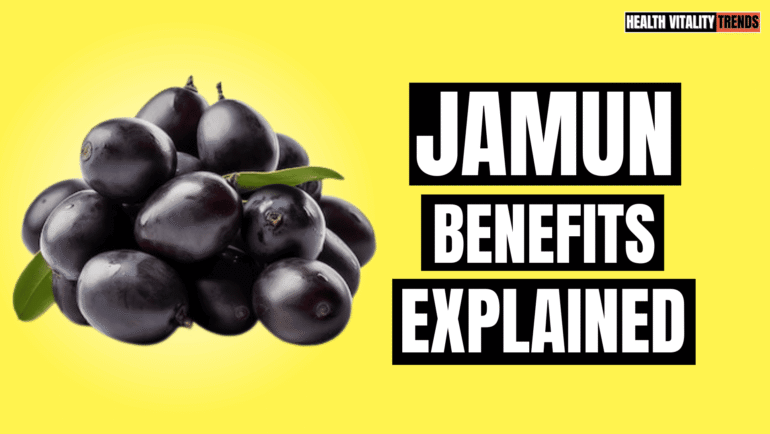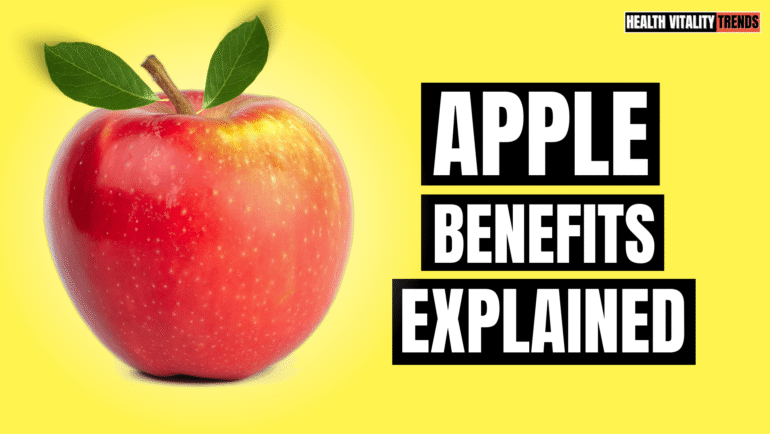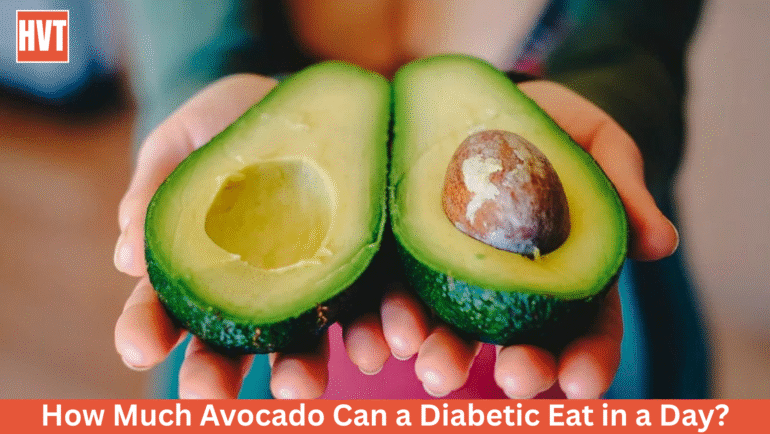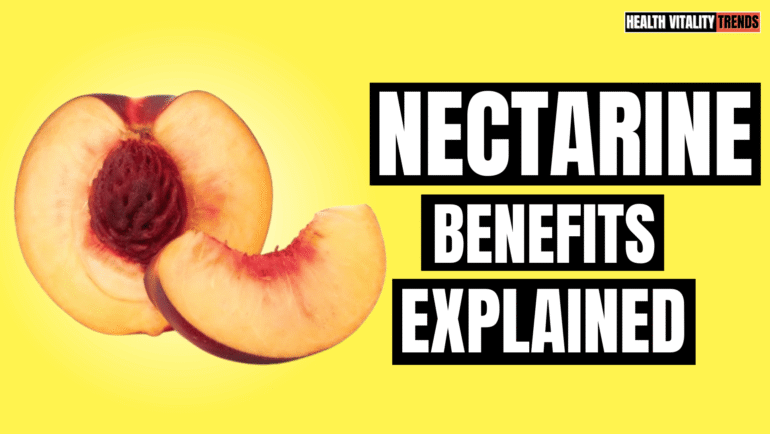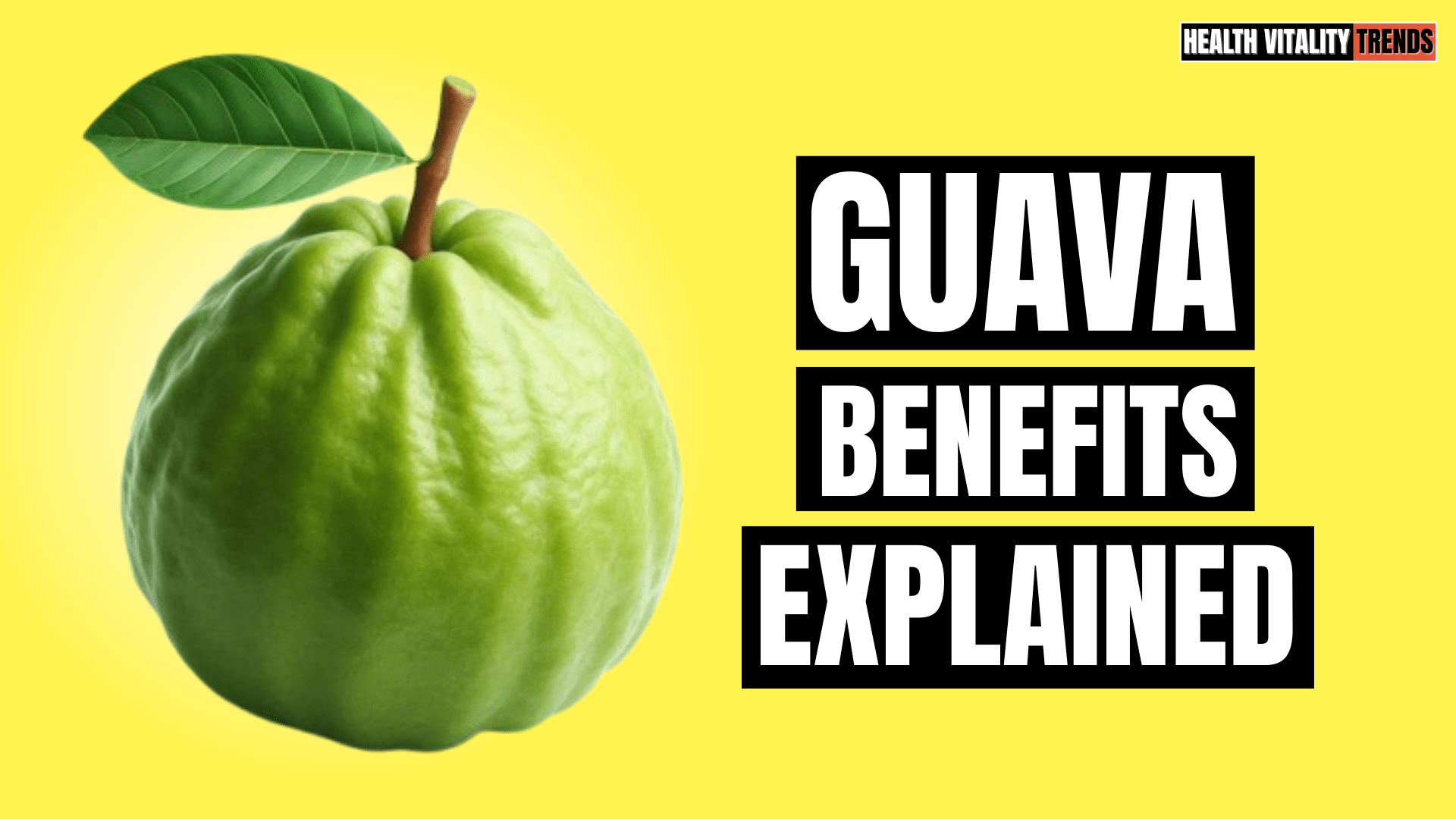
GUAVA: Immune Power & Fiber Richness in the Tropical Fruit Spotlight
Guava is one of the most nutrient-dense tropical fruits, widely known for its exceptional vitamin C, fiber, and antioxidant content.
Often called a “Superfruit” by food experts, it not only supports immunity but also aids your digestion, heart health, and weight management.
With its sweet aroma and versatile culinary uses, guava is often enjoyed fresh, in juice/smoothies, or even as a base for jams.
Let’s explore what makes guava so special, its nutrition facts, health benefits, and the best ways to enjoy it.
What is Guava?
Guava (Psidium guajava)[1] is a tropical fruit native to Central and South America, but it is now widely grown in Asia, Africa, and the Caribbean.
Belonging to the myrtle family, it comes in several varieties. Some have green or yellow skin with pink, red, or white flesh.
In India, it is popularly known as Amrud and Guyabano in the Philippines (though this often refers to soursop).
Guava also holds cultural importance in many countries.
For instance, in Mexico, guava is a key ingredient in ponche navideño[2], a traditional Christmas punch.

What Does Guava Taste Like?
A ripe guava has a unique balance of sweetness and tartness, often described as a cross between a strawberry and a pear.
The texture is soft and juicy, with tiny edible seeds inside it. Some varieties of guava will have a mild and sweet taste, while others can have a sharp tang.
The aroma is often very strong and fruity in the open air, making guava very easy to recognize even before tasting.
Guava Nutrition Facts
Here’s the nutritional profile of 1 medium guava (about 55 g), according to USDA [3]data:
| Nutrient | Amount |
|---|---|
| Calories | 37 kcal |
| Carbohydrates | 8 g |
| Dietary Fiber | 3 g |
| Sugars | 5 g |
| Protein | 1.4 g |
| Fat | 0.5 g |
| Vitamin C | 125 mg (138% DV) |
| Vitamin A | 103 IU (2% DV) |
| Folate (B9) | 27 mcg (7% DV) |
| Potassium | 229 mg (6% DV) |
| Lycopene (in pink guavas) | 5,200 mcg (varies) |
Explanation: Guava is extremely rich in vitamin C, which is double that of most fruits for daily requirements. It’s also high in dietary fiber, making it excellent for digestion and blood sugar control. Pink-fleshed guavas are especially high in lycopene, a powerful antioxidant linked to cancer prevention and heart health.
Health Benefits of Guava
1. Boosts Immunity – Guava contains over 100% of the daily vitamin C requirement in just one serving, strengthening the immune system and helping fight infections (ResearchGate)[4].
2. Supports Digestion – Its high fiber content aids bowel movement and prevents constipation (ResearchGate, 2024)[5].
3. Improves Heart Health – Potassium and antioxidants like lycopene support healthy blood pressure and cholesterol levels (PubMed)[6].
4. Aids Weight Management – The fruit is low in calories but high in fiber, keeping you full. Making it a great morning or evening snack for individuals following a weight loss program.
5. Promotes Skin Health – Vitamin C from the fruit supports collagen production, which in turn may reduce facial wrinkles and promote youthful skin.
6. Helps Control Blood Sugar – Studies suggest guava leaf extract may improve blood sugar levels in people with diabetes (PubMed, 2016)[7].
How to Eat Guava
- Fresh & Raw: Simply wash the fruit thoroughly and eat with or without the peel.
- Juices & Smoothies: Blend with lime, mint, or other tropical fruits.
- Salads: Slice and mix with pineapple, papaya, or cucumber.
- Cooking & Preserves: Used in jams, candies, chutneys, and desserts.
- Leaves: Guava leaves are often brewed into teas for digestive and anti-inflammatory benefits.
Fun Fact: In Thailand, guava is commonly dipped in a mix of salt, sugar, and chili powder for a sweet-spicy snack.
How to Store Guava to Keep It Fresh
- Freezing: Guava pulp can be frozen and used later in smoothies or desserts.
- Unripe Guavas: Store at room temperature until they ripen (turn yellow and fragrant).
- Ripe Guavas: Keep in the refrigerator; they can last for about 3–4 days.
- Cut Guavas: Store them in an airtight container in the fridge and consume within 1–2 days.

Possible Side Effects and Precautions
Side Effects
- Digestive Upset – Consuming guava in excess may cause bloating or diarrhea due to high fiber content.
- Blood Sugar Fluctuations – Although guava is generally safe, overconsumption can affect blood sugar levels.
- Allergic Reactions – Allergies to this fruit are rare, but some individuals may experience skin itching or oral allergy symptoms.
Precautions
- Diabetics: Should consume guava in moderation and monitor blood sugar responses.
- Pregnant Women: Generally safe, but consult a doctor before consuming guava leaf tea.
- People with IBS: High fiber may worsen pre-existing IBS symptoms[8], so intake should be moderated.
- Proper Washing: Always wash freshly bought guavas before eating to remove pesticide residues.
Fruits Similar to Guava
- Strawberry – Similar sweet-tart flavor with high vitamin C.
- Pear – Comparable in texture and mild sweetness.
- Papaya – Shares digestive benefits and tropical taste.
- Dragon Fruit – Another tropical fruit with a mildly sweet flavor.
Common FAQs About Guava
Q1: Can I eat guava seeds?
Yes, guava seeds are edible. They can be swallowed whole or chewed, and are a good source of fiber.
Q2: Is guava good for weight loss?
Yes. Low-calorie and fiber-rich, guava keeps you full and helps manage hunger.
Q3: Can guava help with diabetes?
Yes. Guava fruit has a low glycemic index, and guava leaf extract may help regulate blood sugar.
Q4: Should I peel guava before eating?
Not necessary. The peel is rich in fiber and antioxidants, though some people prefer peeling for taste.
Conclusion
Guava is a green colored fruit packed with vitamin C, fiber, antioxidants, and essential minerals. From boosting immunity to supporting digestion, skin, and heart health, guava offers both immediate and long-term wellness benefits. Its unique flavor, cultural versatility, and ease of use make it a fruit worth adding to your daily diet.
References
- https://en.wikipedia.org/wiki/Psidium_guajava
- https://en.wikipedia.org/wiki/Ponche_Navide%C3%B1o
- https://fdc.nal.usda.gov/food-details/173044/nutrients
- https://www.researchgate.net/publication/358020659_Guava_Juice_and_its_Nutritional_Benefits
- https://www.researchgate.net/publication/380938903_Guava_A_Wonder_Fruit
- https://pubmed.ncbi.nlm.nih.gov/1332463/
- https://pmc.ncbi.nlm.nih.gov/articles/PMC5071920/
- https://www.nhs.uk/conditions/irritable-bowel-syndrome-ibs/symptoms/



